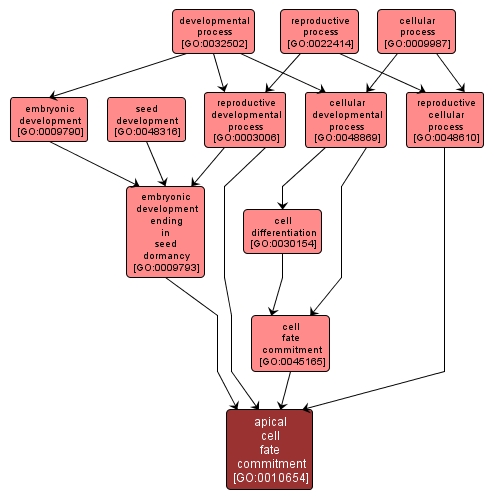GO TERM SUMMARY
|
| Name: |
apical cell fate commitment |
| Acc: |
GO:0010654 |
| Aspect: |
Biological Process |
| Desc: |
The process whereby the developmental fate of a cell becomes restricted such that it will develop into an apical cell. The apical cell is the upper cell formed after the first division of the zygote. |
|

|
INTERACTIVE GO GRAPH
|














